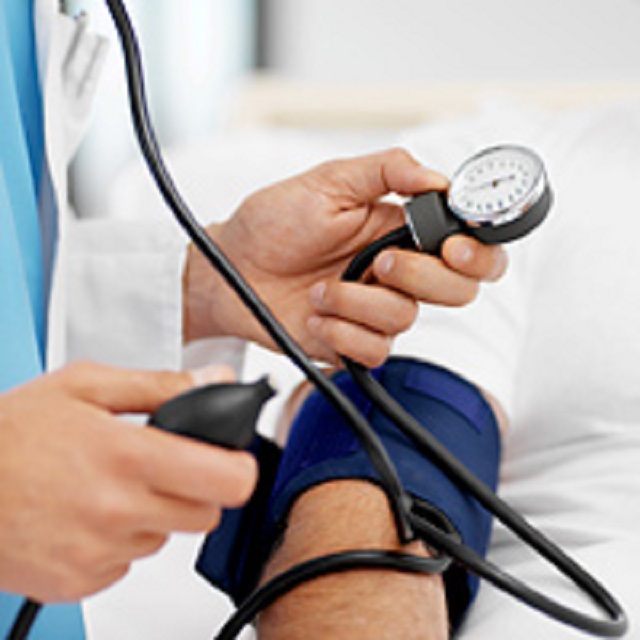High blood pressure: should you worry?

Dr Chris Iliades
One of the most dangerous aspects of hypertension is that you may not know that you have it. In fact, nearly one-third of people who have high blood pressure don’t know it. The only way to know if your blood pressure is high is through regular checkups. This is especially important if you have a close relative who has high blood pressure.
If your blood pressure is extremely high, there may be certain symptoms to look out for, including severe headache, fatigue or confusion, vision problems, chest pain, difficulty breathing, irregular heartbeat, blood in the urine and pounding in your chest, neck, or ears.
If you have any of these symptoms, see a doctor immediately. You could be having a hypertensive crisis that could lead to a heart attack or stroke.
Untreated hypertension can lead to serious diseases, including stroke, heart disease, kidney failure and eye problems.
You should be concerned if your blood pressure is going up, but remember that it’s possible to lower it with proper treatment and lifestyle changes.
According to guidelines followed by doctors, blood pressure is normal if it’s 120/80 or below.
The range of 120/80 to 139/89, which was once classified as normal to high, is now considered to be pre-hypertensive.
If your blood pressure falls somewhere in the pre-hypertensive range, it may quickly develop into high blood pressure, or 140/90 or above. Most doctors now recommend lifestyle changes to lower blood pressure for anyone with a reading above 120/80. If you have added risk factors such as being overweight or having high blood sugar or cholesterol, the concern is even greater.
Even though you may not have any symptoms, high blood pressure increases your risk for cardiovascular disease. Since cardiovascular disease is a leading cause of death, any evidence of high blood pressure is cause for concern.
High blood pressure is a treatable condition. Most doctors recommend starting with these lifestyle changes to lower blood pressure; stop smoking, lose weight, limit alcohol and caffeine, exercise, eat a healthy, low-sodium diet and reduce your stress levels
When lifestyle changes are not enough, your doctor may prescribe one or more anti-hypertensive medications.
You may need to take blood pressure medication for the rest of your life to keep your condition under control.
Remember stopping medication on your own can increase your risk of cardiovascular disease.
What happens if you’ve made lifestyle changes and you’re taking medication, but your blood pressure is still out of control? Doctors call this resistant hypertension.
Resistant hypertension occurs in about 20 to 30 percent of people with high blood pressure. Some common causes include uncontrolled risk factors. Poor control of risk factors such as obesity and diabetes can contribute to resistant hypertension.
Not taking medications as directed. Failure to take medication on schedule or stopping medication without a doctor’s approval can cause blood pressure to go up.
Alcohol and salt intake. Many people with resistant high blood pressure are not controlling their intake of salt and alcohol.
Effects of other drugs.
Over-the-counter pain relievers, decongestants, and some herbal compounds can interfere with blood pressure control.
Other health conditions. Medical conditions such as sleep apnea and diseases of the adrenal glands or kidneys can cause resistant high blood pressure.
If you are having trouble controlling your blood pressure, work with your doctor to find out how you can better manage risk factors. Your doctor may want to perform additional tests to make sure there are no other medical conditions contributing to your high blood pressure.
To prevent cardiovascular disease and other possible effects of high blood pressure, it is important to have your blood pressure checked regularly. Blood pressure that was once considered to be high-normal is now cause for concern.
If you work with your doctor to find the right combination of lifestyle changes and medication, you will probably be able to control your high blood pressure over time. — everydayhealth.com











Comments